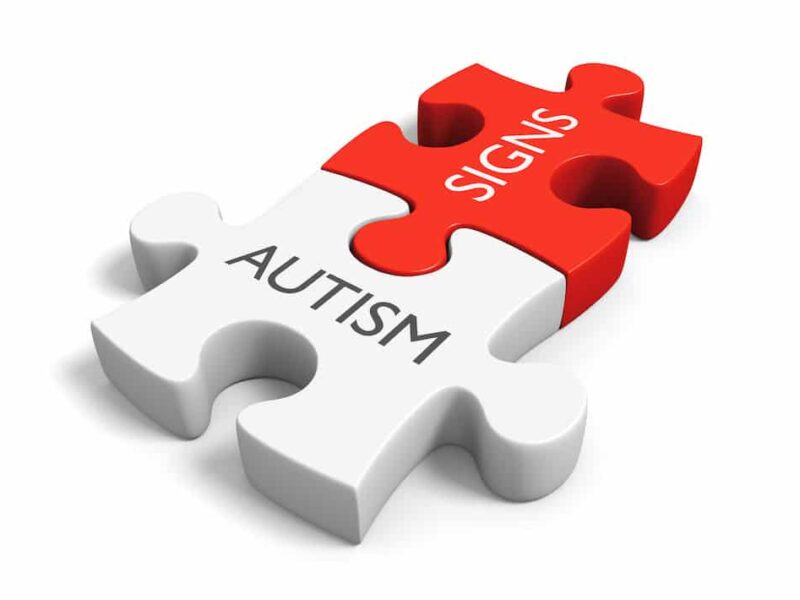Autism: Exploring the Brain-Gut-Microbiome Axis

What does one’s gut have to do with autism? Plenty.
Let’s start with a study published in 2014 in the Journal of the American Medical Association (JAMA) entitled “The Familial Risk of Autism.” Prior to this study, doctors thought autism was about 80 to 90 percent genetic, with environmental factors contributing only 10 to 20 percent to the etiology (the cause or set of causes) of the disease. According to this study, genetic and environmental factors each contribute about 50 percent.
Published that same year (2014) in Bioessays, “Altered brain-gut axis in autism: comorbidity or causative mechanisms” points out that “The concept that altered communications between the gut microbiome and the brain may play an important role in human brain disorders has recently received considerable attention” and that probiotic treatment may benefit several of the abnormal behaviors associated with autism spectrum disorder (ASD).
One year later (2015), the Journal of Molecular Microbiology and Biotechnology published a review entitled “Autism and Our Intestinal Microbiota” concluding that “Microbial products, released into the bloodstreams of mammals including humans, cross the blood-brain barrier and influence neurodevelopment. They can either promote or alleviate neurological disorders including autism spectrum disorders (ASD).” We encourage you to read the free full-text review, which is fairly brief, but we include the summary here:
In summary, numerous studies indicate that gastrointestinal alterations of the microbial ecosystem promote gut permeability, causing the leaky gut syndrome. This condition results in an escape of microbial products and cytokines into the bloodstream, causing neurodevelopmental disorders. Autism is just one of the disorders that may result in part from this condition. The extent to which and mechanisms by which our microbiota influence our feelings, attitudes and mental states represent rich fields for investigation for young microbiologists.
A more recent report (March, 2016) published in Current Development Disorders Reports entitled “The Brain-Gut-Microbiome Axis: What Role Does It Play in Autism Spectrum Disorder?” points out that “signs of altered brain-gut interactions that are closely associated with functional gastrointestinal disorders (FGIDs) commonly occur in children with autism spectrum disorder (ASD).” (The previously cited review also draws this connection.) According to the report, the brain-gut-microbiome axis refers to “the highly integrated interactions and communications between the central nervous system (CNS), the gastrointestinal (GI) tract and the trillions of microorganisms that inhabit the gut.” (A functional gastrointestinal disorder (FGID) is one that cannot be attributed to an organic or physiological condition.)
Citing numerous studies relevant to this topic, the report draws several important conclusions, including:
- A strong association between signs of impaired brain-gut function and GI dysfunction provides a rational for why GI disorders occur more frequently in Autism Spectrum Disorder than neurotypical children.
- Differences in the types and composition of various bacterial organisms in children with Autism Spectrum Disorder as compared to neurotypical siblings and/or healthy controls have been reported. These studies have provided evidence that distinctive microbiomes may be associated with various ASD populations.
- Studies of brain-gut-microbiome interactions provide hope for treating Autism Spectrum Disorder behaviors and co-morbid conditions via manipulation of the gut microbiome.
- Diet and probiotics are routinely used to treat various disorders, including Autism Spectrum Disorder. Done appropriately under the direction of a medical provider or dietitian, these interventions pose little risk to children.
- Future studies of the brain-gut-microbiome axis could greatly enhance our understanding of Autism Spectrum Disorder, such as explaining why GI symptoms are so common in children with ASD, identifying potential targets for therapy and identifying biomarkers associated with GI dysfunction and with an increased risk for developing ASD.
At Restoration Healthcare, where we seek the root cause of chronic illness and dysfunction, we treat families with children on the autism spectrum, and have been doing so for several years. We are pleased to see more and more research that supports what we have known for some time — that nature and nurture both play key roles in the onset and development of chronic illnesses, including autism. Detoxing the body while using nutrition, supplements, and probiotics to restore healthy gut function provide a great course of treatment.
Early intervention is key. Because autism inhibits neurological development, restoring the gut’s healthy microbiome is critical to strengthening the gut-brain interaction. If you’re a parent of child with autism, we encourage you to read the studies we have cited and to consult with a doctor who is well-versed on the brain-gut-microbiome axis and its connection with autism spectrum disorders.


